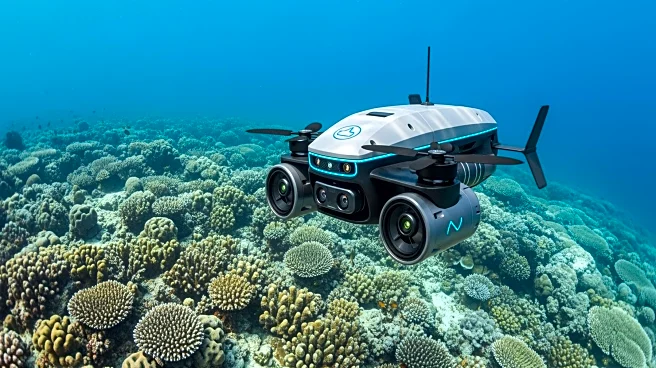What's Happening?
Israeli researchers have developed a new technology aimed at combating the destructive practice of blast fishing, which is prevalent in parts of Asia, Central and South America, the Balkans, and Egypt. Professor Roee Diamant from the University of Haifa
led field trials in the Philippines using an acoustic detection system to locate underwater explosions in real-time. The system, developed in partnership with WildAid, uses hydrophones to detect blasts from up to 15 kilometers away and sends alerts to enforcement officers. Two types of systems were demonstrated: a solar-powered buoy for continuous monitoring and a submerged robotic system that surfaces to transmit data. The technology has been sold to the Philippine Coast Guard and shows potential for commercial expansion.
Why It's Important?
Blast fishing is a significant threat to marine biodiversity, causing widespread destruction of coral reefs and fish populations. The introduction of this technology offers a practical solution for enforcement agencies to detect and prevent illegal fishing practices. By enabling real-time detection and response, the technology could help preserve marine ecosystems and support sustainable fishing practices. The commercial potential of the system also suggests broader applications in other regions facing similar threats, potentially leading to global improvements in marine conservation efforts.
What's Next?
Following successful trials, the next step is to adapt the technology for use in Central America and other regions affected by blast fishing. The expansion of this technology could lead to increased international collaboration in marine conservation and enforcement. As the technology is further developed and deployed, it may also prompt policy changes and increased funding for marine protection initiatives.
Beyond the Headlines
The ethical implications of blast fishing highlight the need for sustainable practices and the protection of marine life. The deployment of this technology could lead to long-term shifts in how countries approach marine conservation, emphasizing the importance of technological solutions in addressing environmental challenges.
















